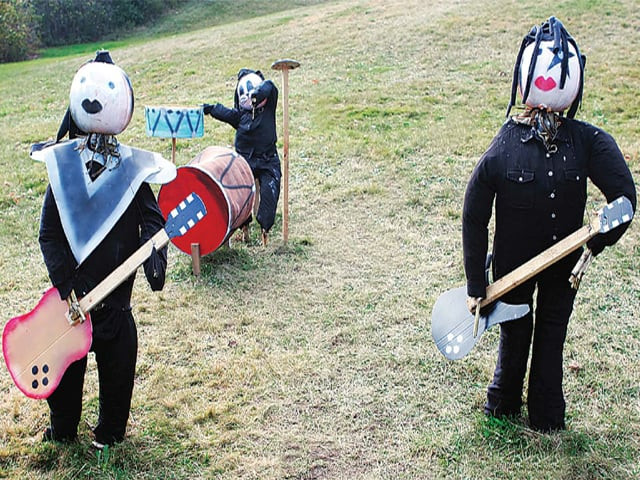The show must go on
Entertainment becomes soft target for dissidents to spread alarm with the onslaught of terror in the country.

While the 1990s boomed with concerts and the rock and roll culture, the 2000s saw a sudden collapse of the industry as the backbone of music and the most crucial platform for a musician, the concert was wretched away.
With limited avenues for releasing their album and now with the proliferation of music online, a live performance via a concert is the only means for a musician to generate income. It was no surprise then that Jal the Band’s front man Farhan Butt a restaurant, Cafe Rock to supplement his income.
Soon the onus fell on South Asia’s largest performing arts festival, Rafi Peer Performing Arts Festival, which despite the organiser’s best efforts could not continue its annual tradition in 2008. Sponsors backed out in light of the bombing that had ensued the year before.
“What irks me is that we aren’t that crippled as a nation that we cannot support a cultural festival,” bemoaned Faizan Peerzada whose family is renowned for organising the festival. “The government needs to see who is promoting the country. To date we have managed to get 16,000 people from 83 countries! It’s a festival of diversity that opens up minds and doors about cultures.”
And if external factors were not debilitating enough, the Shanaakht Festival held by the Citizens Archive of Pakistan got vandalised which led to abrupt end of what was suppose to be a celebration of national identity that depicted Benazir Bhutto alongside military dictator Zia ul Haq.
In spite of a host of entertainment activities, 2010 has been particularly nerve wracking as blasts reached frightening frequency. Yet Event Management Company, Verve, managed to get the Romanian music sensation Akcent to Lahore to perform live.
“We sold only around 400 tickets before the event because people were unsure whether they would actually come or not. Once we put up Akcent’s pictures from the airport on our Facebook page that is when people began to believe us,” said Zafar. “There was a lot of negativity about the event. People went to such extents to malign the event that an email was sent to the band from a faux military official deeming it dangerous for them to come down to Pakistan.”
Event managers routinely have to face such insecurity due to the political instability of the country. The last PFDC Sunsilk Fashion week held in Karachi drew a significant group of the international press whose worst fears came true as a bomb went off near Sheraton where they were all staying. Pragmatic as ever, Frieha Altaf who was managing the fashion week decided, “Not to give a break between the shows, keep the designers and models calm, whisk off foreign media to our homes and give them a taste of Pakistani hospitality.”
What can event managers do when faced with such tribulations? How can industry that is based on creating public events survive in the face of such adversity? Should they become esoteric like the fashion industry and hold events behind closed doors to a select audience?
“Basically just keep at it,” says Zafar. “It is a good idea to go low when such attacks happen, shift one’s focus to corporate/private events but not let it dampen your spirit and pick up when the conditions are better.”
Altaf echoed a similar response, “All mega events need to be held at undisclosed locations and for television, do shows in studios. In the past 21 years this is what I have done.”
“We can’t give in to terrorism but still we can’t do mega concerts like we used to. Invitation events are the bleak future ahead. Losing basant, which is the most public of all events, was the biggest loss to our industry even though trade events like the fashion weeks are helping to draw in foreigners.”
As rightly pointed out, with deteriorating political and social conditions it is only the general public that suffers since avenues for entertainment and public spaces are shut down in fear. For the small privileged minority the shows will and do go on in the confines of private mansions, hotels, clubs and auditorium.
The trend is alarming and counterproductive since relative depravation will breed more resentment and in turn more insecurity.
While we focus on esoteric industries like fashion, more public spheres like music and theatre need to step up to ensure that the public has an outlet to release their frustration as well.
Published in The Express Tribune, January 4th, 2011.



















COMMENTS
Comments are moderated and generally will be posted if they are on-topic and not abusive.
For more information, please see our Comments FAQ